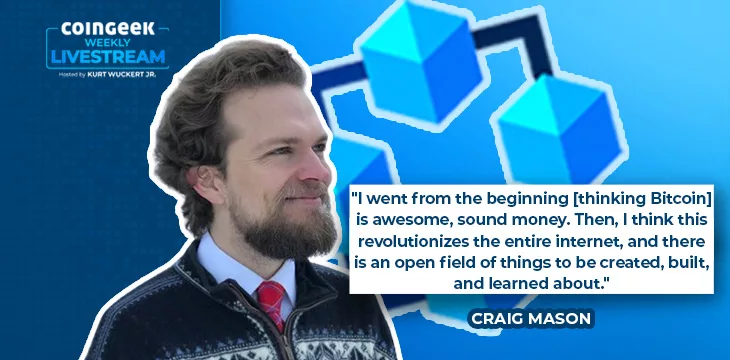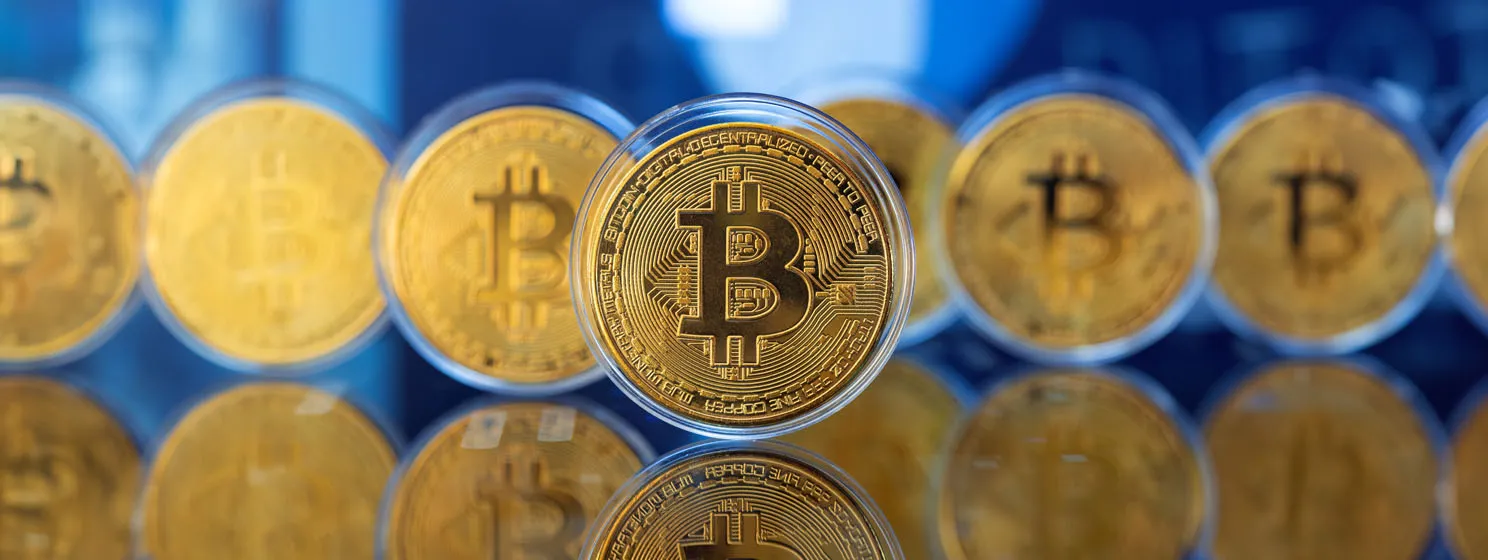|
Getting your Trinity Audio player ready...
|
Podcaster and entrepreneur Craig Mason joined the CoinGeek Weekly Livestream episode 31 to talk about Bitcoin, how it works at scale, and how better data integrity can help with some of the societal issues he covers on his podcast.
Who is Craig Mason?
Mason is a popular podcaster and an entrepreneur with roots outside the Bitcoin ecosystem. He tells Wuckert that, due to the nature of the topics he covers on his show, he was demonetized on YouTube and shadowbanned on Twitter, but he’s popping up again, which is how Wuckert reconnected with him.
Mason says he first heard about Bitcoin on a podcast with Stefan Molyneux. At that time, it was $10 per coin, but he didn’t buy any due to the difficulty of buying the asset. He bought some in the 2017 bull market and watched as the first split happened, creating BCH, then the second, creating the BSV ticker.
Like many people, he found the second split more confusing than the first, but he thought Dr. Craig Wright made a lot of sense, so he kept listening to him. He has maintained that Bitcoin would get cheaper as it scaled, which it has done, making Mason think there’s a good chance he is exactly who he says he is: Bitcoin’s inventor.
How Mason got canceled and the data problem
Wuckert asks Mason how he got banned from Twitter and demonetized on YouTube. He says he could have been more subtle with his opinions. Although he doesn’t display so outright, it’s evident that he questioned some of the narratives around the 2020 election results and the pandemic.
Wuckert points out that, with all of these divisive issues, we fundamentally have a data problem. He says that he won’t state his own opinion on climate change. Still, he believes an application like WeatherSV could be a great way to get reliable, verified data to make educated decisions.
With verified data everyone can test, probe, and use to derive conclusions, there’d be a lot less rhetoric around corrupt, one-sided data and a lot more objectivity in society.
That can only be a good thing, but Wuckert wonders how we’d convince politicians, who often benefit from obfuscating the facts, to embrace a technology like Bitcoin. Mason says anything is possible, and if enough people non-violently stand up and say they want change, it can happen.
Mason goes further, pointing out that in one of Dr. Wright’s recent Bitcoin Masterclasses, he talked about how Bitcoin allows for such granular accounting that it wouldn’t be possible on regular databases as we know them. We can track everything down to individual widgets, pinpointing and tracking where things went wrong. It’s not difficult to see how such transparency could be beneficial for handling issues like vaccine distribution.
The South Florida Bitcoin Citadel and why we need more salespeople in Bitcoin
Wuckert tells the story of how the South Florida Bitcoin Citadel got started. He says he realized Zachary Weiner and Luke Rohenaz lived in Delray Beach Florida, and it was on his list of potential places to move to, anyway. After a visit, he decided on it, and after a while, a few people from the area got together and “memed it into existence.” Mason says it would be great to do something similar in the Pacific Northwest.
Wuckert then gets into another topic— salespeople for the BSV blockchain applications. He believes more real-world reps are surely needed and that if apps like Haste Arcade or CoOm Battles had people on the ground trying to recruit both customers and business partners, things would move faster.
Viewers questions and answers
Some viewers of the livestream then ask some questions related to Bitcoin.
Q. What’s your favorite BSV blockchain enterprise application? Is it applicable to your day-to-day business?
Mason is an accountant by trade, and he sees how the blockchain could be used to create efficiencies in that industry. His favorite app right now is CoOM Battles, and he likes that people are playing without even realizing they are using Bitcoin. He says the game is simple but also has depth, and that’s difficult to achieve in games.
Q. To lock or not to lock, that is the question.
This question refers to locking coins, an idea that has been doing the rounds in the BSV blockchain community recently. Mason says he doesn’t see the point and won’t be locking his coins. Wuckert adds that proof-of-work is the real commitment to the network, and locking coins sounds a lot like proof-of-stake.
Q. Is BTC on life support? Are exchanges?
Mason thinks the answer is yes in both cases. BTC is broken and has nothing to offer. Exchanges are still printing money, but that will die down in time.
Watch: Data integrity through BSV-powered Kensei platform

 07-04-2025
07-04-2025 





